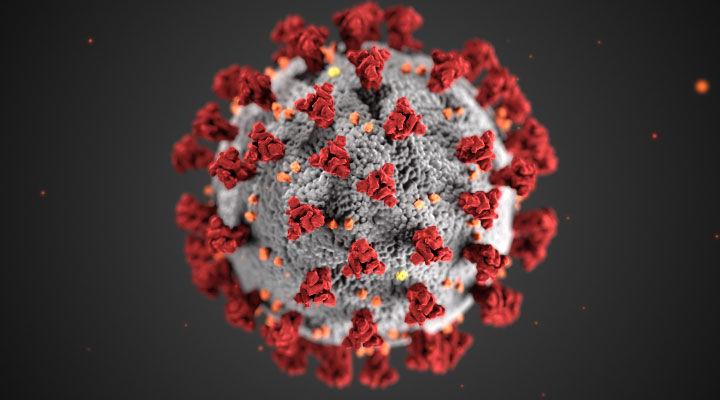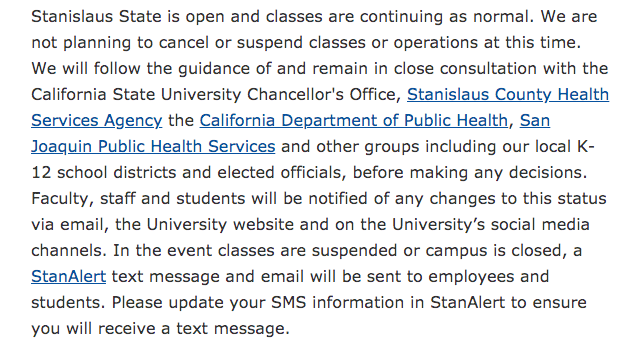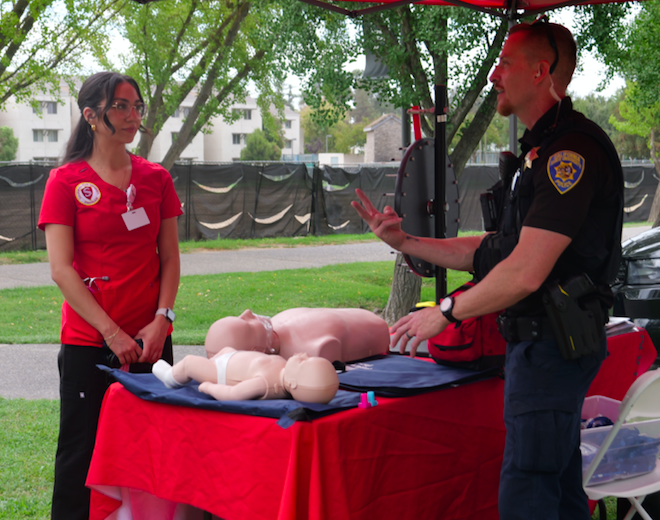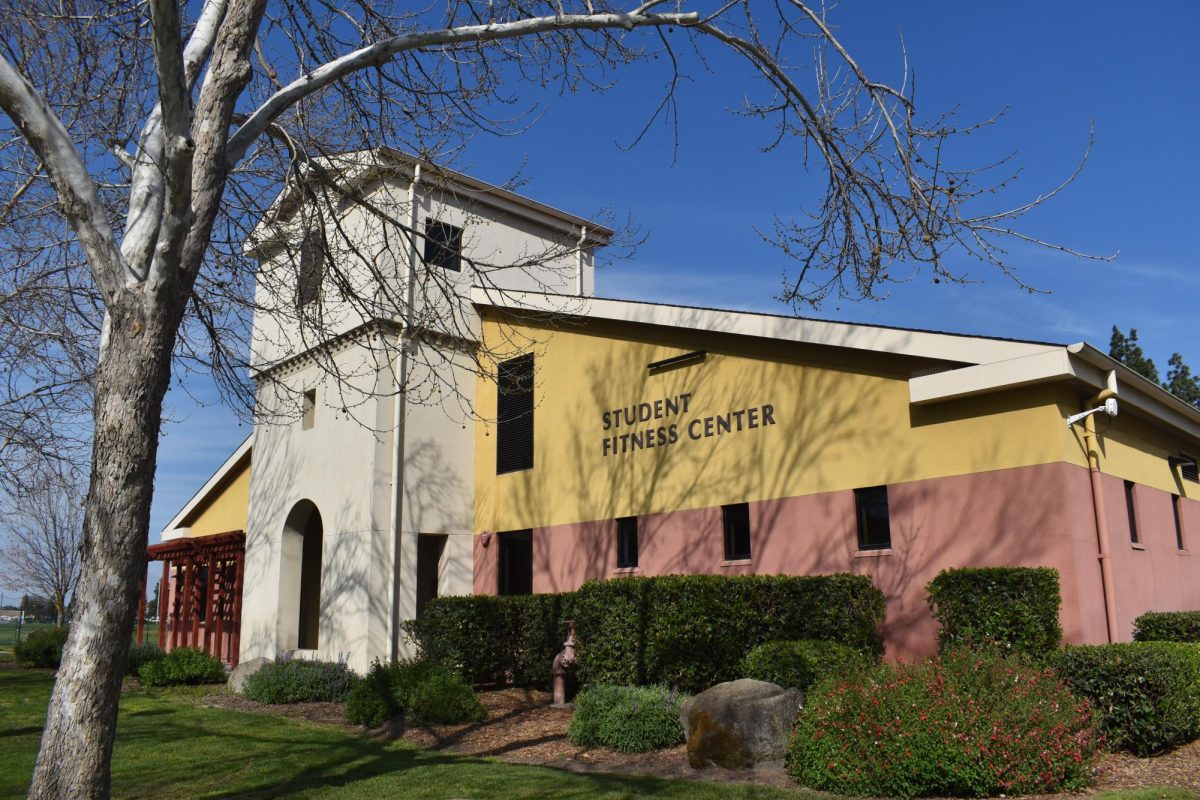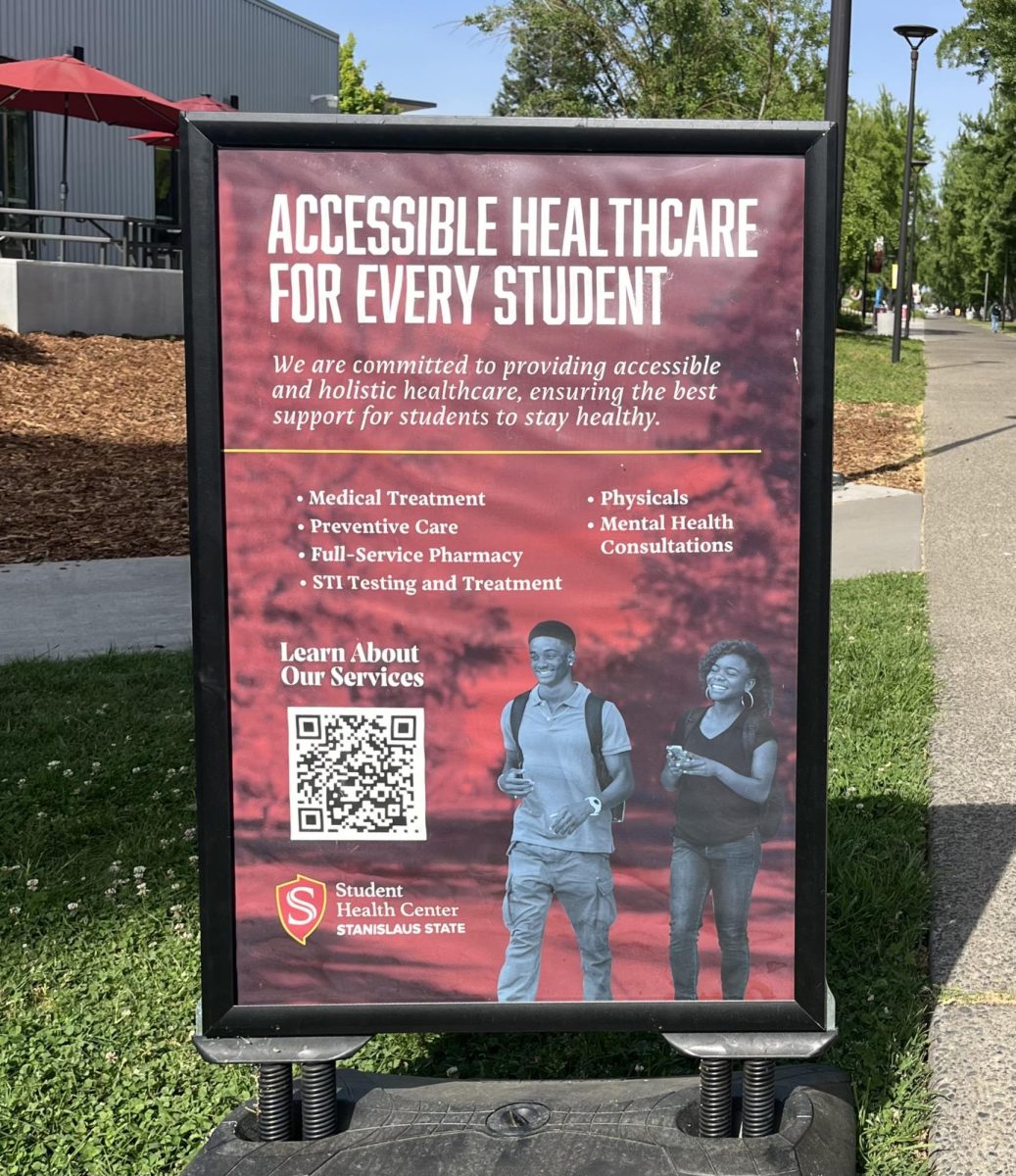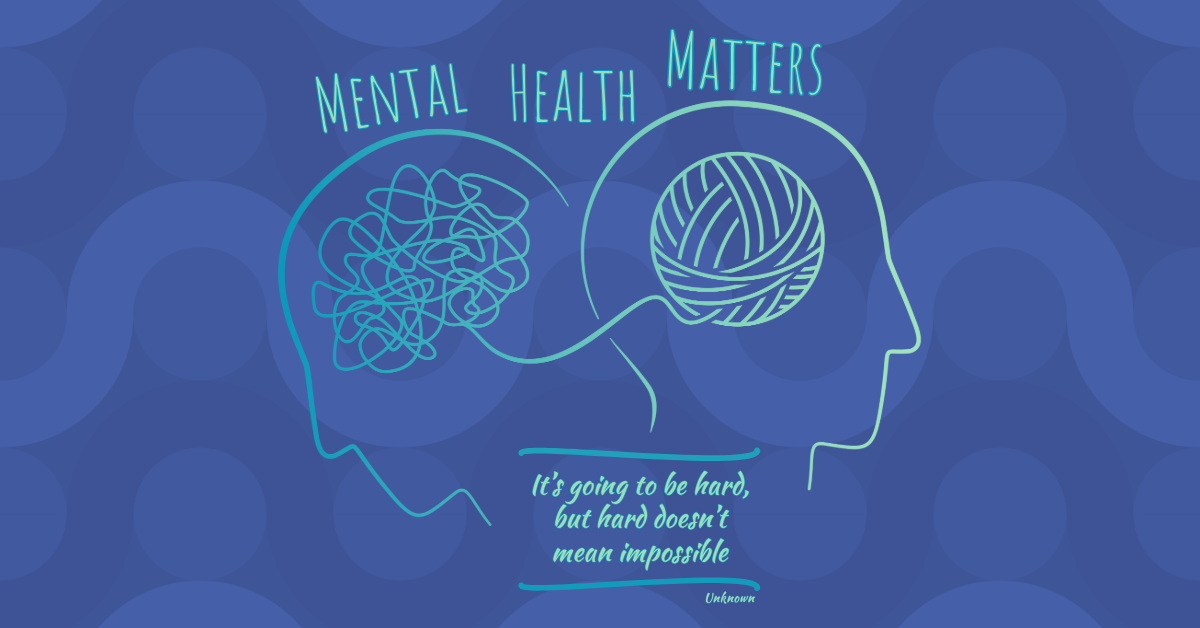Many people, including members of the Stanislaus campus community, have expressed deep concerns about the recent COVID-19 outbreak, better known as the coronavirus.
Countries are under quarantine, state governments have initiated states of emergency, President Donald Trump has issued a 30-day travel ban to the United States from Europe, the NBA has suspended their season, the March Madness college basketball tournament will be played without fans in attendance, and schools along the West Coast have cancelled classes.
The recent precautionary actions have many students concerned for their health and wondering how the university will respond to any possible health threats. Several administrative members of Stan State and the campus health center have spoken on the issue and have tried to provide answers for those concerned.
“Young, healthy people do not appear to be at high risk,” says Laura Roberts, Registered Nurse at the Health Center, “so the strategies to prevent community transmission are important to protect our elders, medically vulnerable, and keep our health care system functioning well for those who are most urgent and need care.”
Although the younger demographic are at less risk than older people and those with existing health conditions, young people have contracted the virus and have spread it to other, more vulnerable individuals.
President Ellen Junn has remained determined to let classes continue on as usual, as the virus is not a “current risk to the Stan State campus and surrounding community.”
It is not clear as to what is exactly considered to be a “serious risk” to our community, since the first reported cases of COVID-19 in Stanislaus County have been confirmed. According to the Stanislaus County Health Services Agency, two individuals in the county have tested positive for the virus, while 17 others are currently being tested, as of March 11. California Governor Gavin Newsom also proclaimed a state of emergency last week, on March 4.
In the event of a campus closure, course assignments and instruction would have to be done virtually. Provost and Vice President for Academic Affairs, Dr. Kimberly Greer sent out surveys to the campus community regarding their device availability and home internet access. The survey was sent in hopes of gaining a better understanding of the measures the school would have to take if the campus were to close.
“There are currently no plans to close campus or suspend classes, the situation is rapidly evolving and at some point in the near future it may become necessary for faculty to deliver instruction in alternate formats,” explained Greer.
Despite the lack of action being taken in terms of class cancellations, some professors have already begun to take matters into their own hands, proceeding to hold classes and meetings through applications such as Skype, Zoom, and further communicating with their students through emails, Canvas and Blackboard.
Additionally, both international and domestic travel has been suspended, unless a trip is deemed to be absolutely necessary. It is also unclear as to which trips meet the “necessary” qualifications. As of now, since no one situation is the same, the campus is looking at each planned trip one at a time and determining whether it is necessary and safe for travel.
On Wednesday, the World Health Organization has officially declared the coronavirus as a pandemic. They have reassured the public that, if treated quickly and accordingly, any further spreading of the virus could be halted.
“We cannot say this loudly enough, or clearly enough, or often enough,” says Tedros Adrenhom, Director-General at the World Health Organization. “All countries can still change the course of this pandemic. If countries detect, test, treat, isolate, trace and mobilize their people in response, those with a handful of cases can prevent those cases becoming clusters, and those clusters becoming community transmission.”
It’s important to remember to thoroughly wash your hands, keep your eyes away from your face, and stay home if you feel ill. Just a little can go a long way.
Greer also recommends that the community keep tabs with the Centers for Disease Control and Prevention (CDC), as they will have the latest updates on the state of the nationwide outbreak.
The Student Health Center also has an FAQ page regarding COVID-19, which you can find here.
For the latest updates on Stanislaus County’s confirmed cases and tests, head to the Stanislaus County Health Services Agency’s website, where information regarding the coronavirus is provided.

